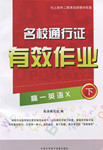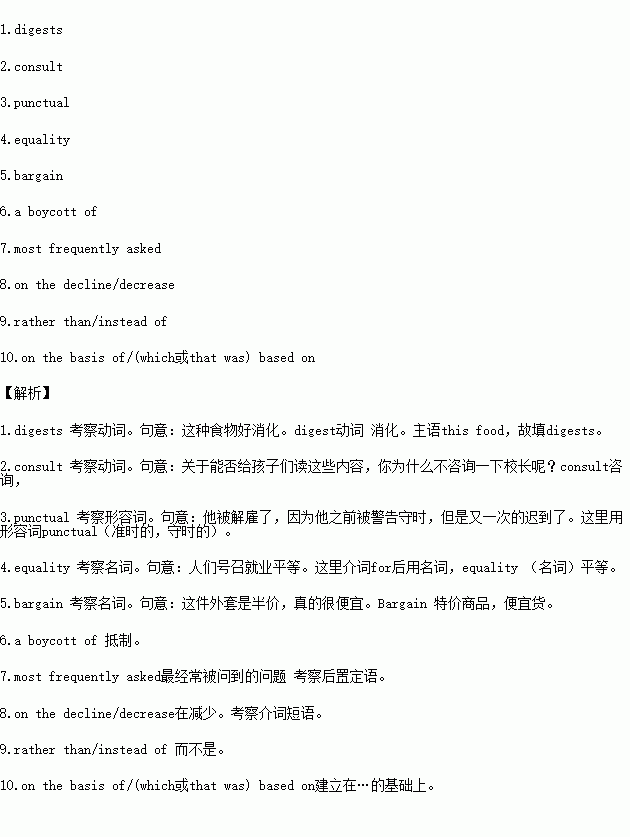题目内容
单词拼写
1. This food (消化) well.
2."Why don't you (请教) the headmaster as to whether you can read them to the boys?" Roger said.
3.He was dismissed, because he had been warned to be (守时) but was late again.
4.People call for (平等) in employment.
5.This coat was half-price, a real (便宜货)
完成句子 (不限词数)。
6.马丁路德金宣布明日开始抵制公交车运动。
Martin Luther King announced buses will begin tomorrow.
7.十个最常问到的问题如下。
The ten questions are listed below.
8. 这地区的劫案在减少。
The number of robberies in the area is .
9.我喜欢看地图而不是书面或口头指令。
I like to follow a map written or spoken directions.
10. 这种建立在肤色基础上的不公正的隔离受到了挑战。
This unjust separation of people skin color was challenged.
练习册系列答案
 名校通行证有效作业系列答案
名校通行证有效作业系列答案
相关题目

